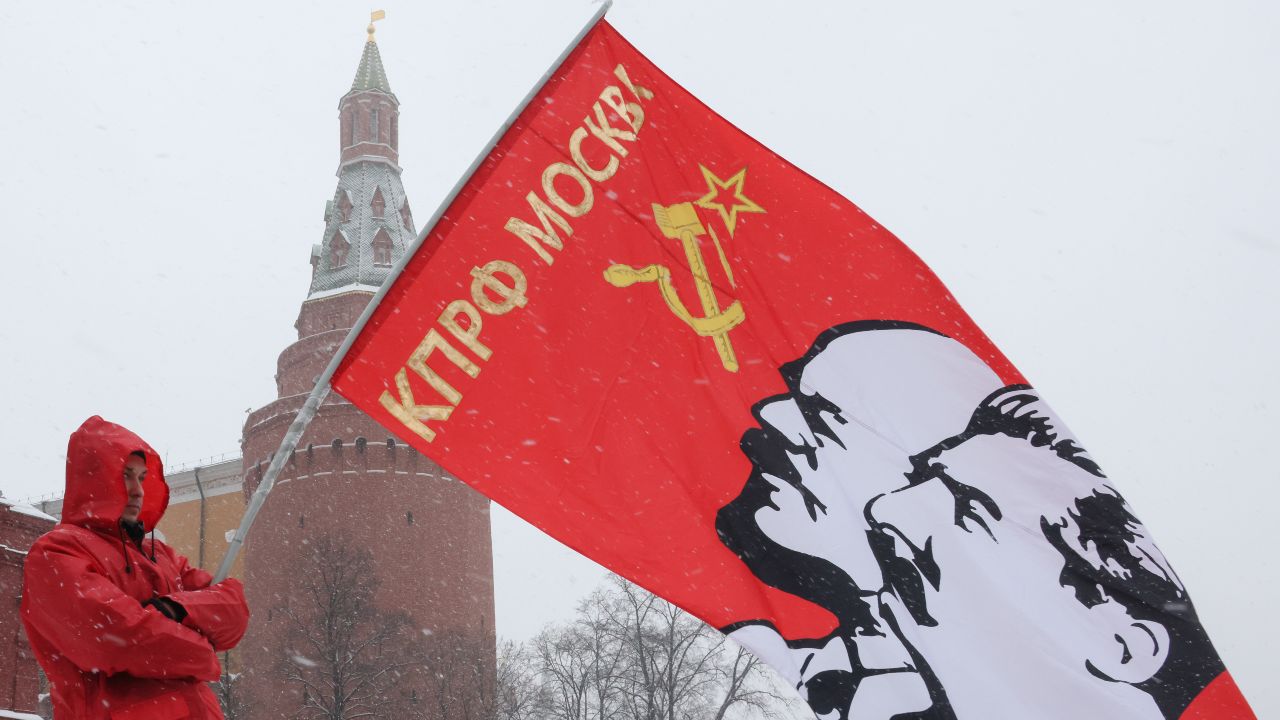In September last year, Vladimir Putin’s United Russia party faced headwinds that would spell electoral disaster in a more free society. The Duma elections were the first since the government had passed deeply unpopular pension reform in 2018 and came as the count of excess deaths during the pandemic neared one million.
Within weeks of the election, Russia was menacing Ukraine with threats followed shortly thereafter by a massive troop build-up. In the intervening months, the opposition Communist Party, which showed hints of splintering from the Kremlin for the first time in a generation and which did well in the Duma vote, has rallied behind Putin’s bellicose foreign policy. As a response to a poor election performance, the Kremlin-manufactured crisis in Ukraine has already paid dividends. Russia’s opposition has ended its flirtation with opposition.
Led for three decades by the Soviet Union’s former propaganda minister Gennady Zyuganov, the Communist Party of the Russian Federation has morphed from radical, civil war-threatening revanchists in the 1990s to a component of the “systemic opposition” that gives voters an option to register discontent without threatening the rule of Putin’s United Russia party. In exchange for cooperation, Putin has helped to achieve a litany of Communist goals: the rehabilitation of Soviet leaders, the subjugation of media to the state, the marginalization of (some) oligarchs, and increased combativeness with the West.
In turn, Communist criticism of Putin is rarely more than rhetorical. For instance, the Communists denounced pension reform as “genocide,” before unanimously voting in favor of the plan. Yet when it comes to elections, Russian voters have few options. Anti-corruption crusader Alexey Navalny was (and still is) behind bars and the ultranationalists were in disarray following the 2020 arrest of rising star Sergei Furgal. The protest vote coalesced around the Communists.
The party ran not only on bread and butter issues–extending yet further state control over society and reversing pension reform–but also on a more combative foreign policy. Zyuganov, who has long framed the dissolution of the Soviet Union as a tragedy, promised on the campaign trail to reunite Russia and Belarus. The day before the election, he called on Russian authorities to overthrow Ukrainian president Volodymyr Zelenskyy, who he accused of being “ready to organize a massacre even here, shelling Donbas, where your [Russians’] relatives and friends are sitting.”
The Communist messaging—or the desire for a protest vote—found a large enough audience to worry United Russia. The ruling party put forward spoiler candidates with the same names as Communist contenders. The government banned a leading Communist candidate. Izvestiya, a leading national newspaper owned by a Putin-allied oligarch, accused Communist candidates of pedophilia. Estimates of the share of votes for United Russia that were fraudulent ranged from 14% to 20% of the total. One political scientist posited that in a fair election the Communists would have taken a plurality. But the official tally instead showed United Russia at 49% and the Communists at 19%. Communist protestors took the streets and lawyers prepared to challenge the results. The police suppressed the protestors and threatened the lawyers with arrest. Despite the upswelling in the ranks, Zyuganov bided his time, skipping the protests to meet with Putin, seemingly content with a vote that increased Communist seats in the Duma by a third.
As the election unfolded, the Russian military was conducting a war game with Belarus along both countries’ border with Ukraine. Three weeks later, Dmitry Medvedev, former president and head of the National Security Council, published an open letter to Zelenskyy, accusing him of allying with Nazis and foreclosing on the possibility of any future negotiation. American intelligence soon began to raise the alarm about the continued presence of Russian troops on the Ukrainian border.
Direct confrontation was the preferred Communist method to dealing with an administration in Kyiv that Zyuganov refers to as “the CIA and the rapists”. In April, when Russian troops first amassed on the Ukrainian border, Zyuganov applauded. His deputy called for outright invasion: “It will be very good if, in the end, Russian troops do not attack from the Belgorod Oblast [on the Russian side of the Ukrainian border] but stand in Donetsk and Lugansk!” Now Communist deputies openly call for war. The Communists have meanwhile introduced legislation to recognize the sovereignty of the self-styled people’s republics in Donetsk and Luhansk, which would make war “a direct necessity” according to one sponsor. It is making its way through the Duma at a pace determined by Putin’s aides.
With Putin’s popularity now on the rise, and the largest opposition party firmly at his back, Kremlin aggression in Donbas is rallying at least some of the discontented around the Russian flag.
Ben Dubow is a nonresident fellow at CEPA and the founder of Omelas, which specializes in data and analysis on how?states manipulate the web.




